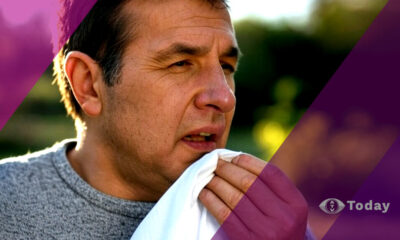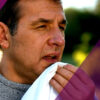According to a new study, as many as three quarters (75 percent) of Brits say they have no idea what to believe anymore when it comes to their health and well-being…
The findings suggests across the UK people are searching the internet for advice at least six times a week. As many as 69 percent admit to attempting multiple healthy eating plans, only to give up on them to try something different – with the average Brit attempting THREE fad diets a year on average.
And the poll revealed the top health questions we would like answered once and for all, with whether fruit is healthy or too high in sugar, emerging as the biggest area of confusion (29 percent), according to the 2,000 Britons surveyed.
Other conflicting health messages the nation would like settled, include, “how much water should I drink each day?’ (28 percent), “how much fibre should I be eating?” (25 percent) and “Is breakfast really ‘the most important meal of the day?” (23 percent), according to the poll from biosensor app and coaching programme Lingo by Abbott. “Do tea and coffee count towards my fluid intake?” (25 percent), “should I be counting calories or carbs?” (25 percent) and “how much protein should I really eat?” (24 percent) also featured in the list.
One in five (19 percent) say they have no idea if dark chocolate is good for them, while a further 19 percent admit they are left wondering how many times a week they can eat eggs. Eight in ten (82 percent) wish they understood more about how to eat healthily and where to gain tailored, individual health advice.
Expert nutritionist Sophie Bertrand from Lingo by Abbott:
“With so much information at our fingertips with the internet and social media – it’s easy to get confused, so always make sure you’re getting information from a reliable and trust-worthy source. The truth is our bodies all react differently to different foods, and while a diet low in sugar is generally key to helping manage blood sugar levels, you may react differently to a piece of fruit than your colleague or friend.
“Generally speaking, opting for protein and fibre rich meals can help keep you stay satisfied which may reduce sugar cravings. For main meals like lunch or dinner, I like to focus on plant-based foods that provide fibre such as vegetables, grains, nuts and seeds – and adding protein such as fish, eggs or tofu (meat eaters can also include meat options). Snacking on lower sugar fruits such as berries paired with nuts or nut butters can help you avoid blood sugar spikes. Unless you have specific dietary needs or certain intolerances or allergies – my advice is always to prioritise nutrient rich foods and just keep a close eye on what works best for you.”
Top 15 Asked foodie Questions on health…
- Is fruit healthy or too high in sugar? – 29%
- How much water should I drink each day? – 28%
- Are diet soft drinks ok to consume? – 26%
- Is breakfast ‘the most important meal of the day?’ – 25%
- Does tea and coffee count towards my fluid intake? – 25%
- How much sugar should I eat? – 25%
- Should I be counting calories or carbs? – 25%
- How much protein should I be eating? – 24%
- Which fats are good and bad? – 23%
- How much fibre should I be eating? – 23%
- Is dark chocolate healthy – 21%
- How many eggs should I eat in a week? – 19%
- Should I cut out carbs completely? – 19%
- What are good bacterias? – 17%
- What are complex carbohydrates? – 16%











